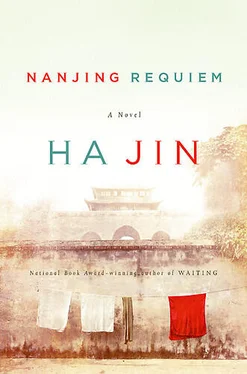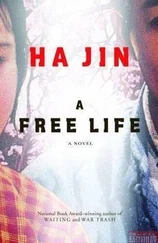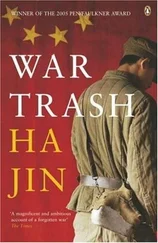The four of us smiled, because the fowls were all healthy. “My goodness, ‘you will bleed from every orifice,’ ” Holly said to me. “You must’ve scared the heck out of them.”
Rulian giggled. Without delay we went back to the camp, where rice porridge was being doled out to the refugees for the afternoon meal.
Ban hadn’t returned yet, and Minnie was worried. The headquarters of the Safety Zone was just a stone’s throw away, and he should have come back long ago. We couldn’t help but wonder if he had run into trouble. The boy was an orphan, whose keep in a nearby orphanage had been paid by our college for years before we hired him, so he was more than just an employee to us.
After the refugees had finished their meal, we went to the dining hall to have supper. Most of us hadn’t eaten anything since the morning. Minnie and Holly collapsed onto chairs, saying they preferred a nap to food. They closed their eyes, ready to drop off.
“Please, you ought to eat to keep going,” I said, placing a bowl of porridge in front of Minnie. I moved a plate of fried soybeans closer. As I was getting another bowl for Holly, Luhai rushed in.
“Minnie,” he said, “some Japanese broke into the house where we store our rations.”
“Did they take the rice?” she asked.
“I’m not sure.”
“What did they tell you?” I said.
“They just punched me.” While speaking, he rubbed his bruised cheek.
The three of us went out with Luhai. The house in question was across the street from the front gate, and the rice was actually not ours. It was the Red Cross workers manning the porridge plant who’d left the ninety sacks in there, about twenty thousand pounds of rice. If the Japanese took the grain, the refugees here would starve. Approaching the house, we saw a lamp wavering at its entrance. A soldier barred our way, shouting in stiff Mandarin, “Stop! Stop there!”
“This is our college’s house!” Minnie cried back, and tried to push in. Then a young officer with a short beard came out of the room that held the rations. Minnie fluttered a small U.S. flag at him and said, “The rice is American property. You can’t have it! Get your men out of here. Are you in charge?”
The officer didn’t understand her; he turned around and said something to the men behind him. Two of them came up and shoved the four of us away. Then the officer pulled out his Yamato sword, cutting the air right and left while screaming as if he were performing onstage. The blade whirred and whistled. Frightened, none of us dared step closer again.
Without delay we went down Ninghai Road to the Safety Zone headquarters, which was just steps away. John Rabe was there alone, wearing a steel helmet like an officer. On his desk were some old issues of Ostasiatischer Lloyd , a small German-language newspaper published in Shanghai. Minnie asked him if Ban had come to inform him of a random arrest at our college. “I didn’t see him,” Rabe said, puzzled and wringing his plump fingers.
“Oh God, I hope he didn’t fall into Japanese hands!” Minnie said.
“He didn’t show up here at all?” I asked Rabe.
“No. I’ve been here since nine a.m.”
“I should never have sent him out,” said Minnie.
Holly described the rice situation. Rabe replied, “Maybe I should go and talk to them. Let’s hope we still can reason with those hoodlums.”
As Rabe stood up, ready to head out, the telephone rang and he picked it up. I was amazed that his phone still worked. The call was from Rosen at the German embassy; he said that squads of Japanese soldiers were at Rabe’s home and his German school, about to break into the compounds. Some of them were brandishing torches and threatening to toss them onto the properties if the gates remained shut. Rabe’s home and the small school sheltered hundreds of his Chinese friends, neighbors, and servants’ families in addition to many refugees, so he had to run.
Before leaving, Rabe called over Cola, the Russian who knew some Japanese. Young Cola wrote a short official letter for us to take back so we could show it to the soldiers occupying the house where the rice was stored the first thing the next morning.
Cola had grown up in Siberia, where his ancestors had done business with the Chinese, Koreans, and Japanese for generations. He had lived in our city for almost a decade, and children called him “the yellow-haired Russian.” He told us that the Japanese had arrested thousands of men suspected of being stragglers and deserters from the Chinese army and had raped hundreds of women in the southern and eastern sections of the city, where streets were strewn with dead bodies. There were also Japanese “fire squads” torching houses and buildings in different areas. Worst of all, some soldiers killed the women they raped to avoid being identified by them to the military police later on; in fact, there were very few policemen in town at the moment. Reports of atrocities within the Safety Zone had come nonstop for a whole day, but Rabe had been unable to contact the top officers of the invading force. We could only hope that the military would soon be able to control the soldiers who were running amok.
“I don’t think those brutes would kill and rape without their officers’ consent,” Holly said.
“The army certainly hasn’t bothered to rein them in,” Cola agreed.
“Who could have imagined such brutalities?” Minnie said.
“What should we do?” Holly asked.
“Nothing I can think of.” Cola shrugged.
When we returned to campus, we saw dozens of women sitting back to back in the front yard, along the cypress hedges. The buildings were already too packed to take in any more people, but more continued flocking to the camp. Agitated by the disappearance of Ban and wanting to pray for him, Minnie said good night to us and headed back to her apartment.
IT WAS MILD and sunny the next morning. Watching the refugees in the quad, I was grateful for the warm weather, which felt like October. This would make the uprooted people less miserable on the road or in the wilderness, since they had nothing to protect themselves from the elements. Never had I imagined that our fortified capital could be smashed so easily, like a ceramic vat hit by a mallet. In the north, artillery fire surged and ebbed, rumbling amid smoky and blazing clouds. There was still fighting in the Hsia Gwan area, and the Japanese warships were shelling the remaining Chinese troops and sinking boats and rafts that attempted to cross the river. Around Jinling, rifles crackled from time to time.
Early in the afternoon Holly and I went out to the Drum Tower area, a short walk to the northeast. She had not returned home three nights in a row and was afraid that her house might have been plundered, though she had thumbtacked an American flag to the front door and sealed it with a poster from the U.S. embassy. As we walked along Shanghai Road, many Japanese flags were flying from the houses and buildings, flapping like laundry. A few banners made of white cloth even declared, LONG LIVE THE EMPEROR!
“Those people will do anything to save their skin,” Holly grunted.
“They must be terrified,” I said.
“I’m a Chinese citizen too, but I won’t say a good word about the Japanese brutes.”
“You have a foreign face, Holly. To tell the truth, I wouldn’t dare to step off campus without your company.”
We turned into the small alley alongside the eastern border of the Safety Zone. Seven or eight houses on the street had been razed, set on fire after being looted. Holly’s home was among them, and her car was gone too. A young man, bayoneted twice in the chest, lay dead on his side below the brick wall of her yard, his back naked, his hair scorched, and the exposed side of his face eaten by dogs. He looked like a stranger to Holly. “Savages, worse than beasts!” she cursed the soldiers, and broke into tears, wiping her face with the end of her scarf.
Читать дальше











